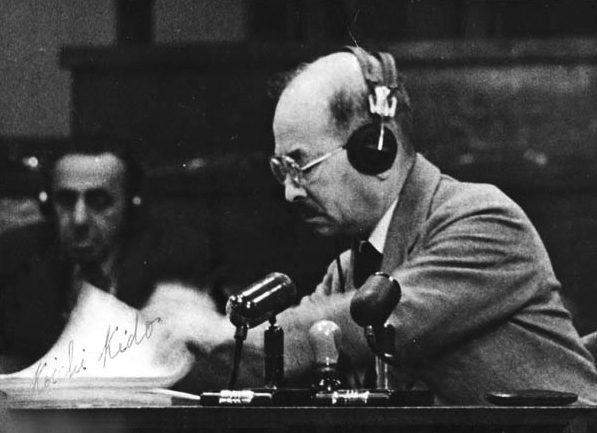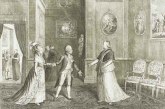
Story Highlights
- Historical event
- 6 April 1977
- Japanese Marquis Kōichi Kido was the Lord Keeper of the Privy Seal at the Imperial Palace during the World War II. He was so loyal to the emperor that on the trial after the war he wanted to assume the blame, as he was the one making decisions, not the emperor.
On this day died Japanese Marquis Kōichi Kido, the Lord Keeper of the Privy Seal at the Imperial Palace during World War II.
In Japanese language that office was called “Naidaijin”, which literally means something like “Inner Minister”.
Marquis Kōichi Kido had a great influence on the Japanese court because he could control access to the emperor. Indeed, his power could have been even greater than that of the Japanese prime minister.
The title of marquis (Japanese “kōshaku”) is a high title in the Japanese nobility system. Of course, the word “marquis” is of European origin, and in fact is only a Western translation of that degree of nobility, the second highest after the prince.
However, the Japanese themselves translated this rank in the West as the “marquis”. Below marquise in Japan were the titles of count (hakushaku), viscount (shishak) and baron (danshaku).
Marquis Kōichi Kido had an impact on the Japan’s entry into World War II, and later on establishing peace.
In the eve of war, he advised Emperor Hirohito to appoint General Hideki Tōjō as Prime Minister of Japan. After the war, Tōjō was condemned as the worst Japanese war criminal, like Japanese Hitler.
Emperor Hirohito, however, was not persecuted in court after the war. Marquis Kōichi Kido was allegedly responsible for persuading the government of Japan to surrender.
He was so loyal to the emperor that on the trial after the war he wanted to assume the blame, as if he was the one making decisions, not the emperor.
He was sentenced to life in prison, but was released in 1953 because of poor health. He died on this day, after spending the last 24 years of his life free.




